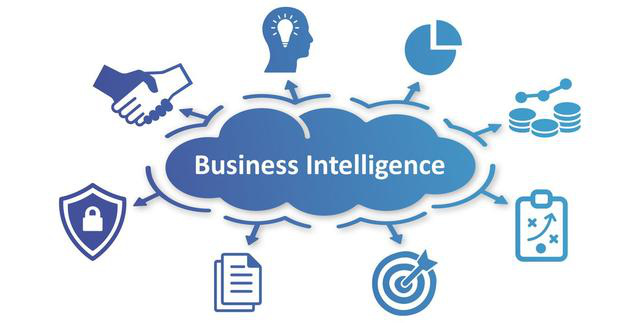
The Importance of Business Intelligence in Decision Making
In today’s fast-paced and data-driven business environment, the ability to make informed, strategic decisions is more important than ever. Business Intelligence (BI) plays a crucial role in helping companies gather, analyze, and interpret data to drive better decision-making. As organizations continue to generate vast amounts of data, BI tools and technologies provide the insights needed to convert this data into actionable information that guides business strategies and operations.
In this blog post, we’ll explore the importance of Business Intelligence in decision-making and how it can help businesses achieve growth, optimize processes, and stay competitive in the market.
1. What is Business Intelligence?
Business Intelligence refers to the technologies, tools, and practices used to collect, analyze, and present business data to support better decision-making. BI encompasses a wide range of activities, including data mining, data visualization, querying, and reporting. By transforming raw data into meaningful insights, BI helps organizations make smarter decisions based on facts, rather than intuition or assumptions.
BI tools help businesses analyze historical and real-time data, uncover trends, patterns, and relationships, and generate reports that inform strategic decisions. With the right BI system in place, businesses can improve efficiency, identify opportunities for growth, and mitigate risks more effectively.
Also Visit This Informative Blog
2. Enabling Data-Driven Decision Making
In the past, many business decisions were made based on intuition, experience, or gut feeling. While these factors still play a role, today’s business landscape demands data-driven decision-making to stay competitive. BI helps companies base decisions on data, ensuring they are backed by facts and insights that are relevant to current business conditions.
- Improved Accuracy
Data-driven decision-making reduces the risk of errors or biases that can arise when decisions are based solely on instinct. BI provides accurate, real-time data that reflects the most up-to-date information, allowing businesses to make decisions with greater confidence. - Faster Decision-Making
With BI tools, decision-makers can access dashboards and reports that provide a comprehensive view of business performance. This immediate access to critical data allows leaders to make faster decisions, leading to quicker responses to market changes and challenges. - Reduced Risks
By relying on data rather than assumptions, businesses can reduce the risks associated with decision-making. BI tools highlight trends, anomalies, and potential issues before they become problems, enabling businesses to take proactive measures to address them.
3. Identifying Opportunities for Growth
Business Intelligence is instrumental in identifying new opportunities for growth and innovation. By analyzing data from various sources, companies can spot emerging trends, market demands, and customer preferences that may otherwise go unnoticed.
- Market Trends and Consumer Behavior
BI tools allow businesses to monitor market trends and track consumer behavior in real time. This information can be used to adjust marketing strategies, develop new products or services, and improve customer engagement. - Competitive Advantage
BI enables businesses to keep a close eye on competitors, analyzing their strategies, pricing models, and market performance. By understanding competitive movements, companies can adjust their own tactics and gain a competitive edge. - Optimizing Product and Service Offerings
With insights into customer preferences and buying patterns, businesses can refine their product and service offerings. BI helps organizations identify what’s working and what isn’t, allowing them to focus on areas that bring the most value to customers.
Also Visit This Informative Blog
4. Enhancing Operational Efficiency
BI is not only useful for strategic decision-making but also plays a key role in improving operational efficiency. By analyzing internal processes and performance metrics, businesses can identify inefficiencies, bottlenecks, and areas for improvement.
- Streamlining Processes
BI tools help businesses track and measure operational performance, allowing managers to pinpoint areas where processes can be streamlined. By automating tasks, improving workflow, and reducing redundancies, businesses can lower costs and increase productivity. - Resource Allocation
BI helps organizations optimize resource allocation by providing insights into where resources (e.g., time, personnel, or finances) are being underutilized or overburdened. This ensures that resources are allocated more effectively, leading to better outcomes and cost savings. - Inventory and Supply Chain Management
By analyzing data related to inventory levels, production schedules, and supply chain performance, businesses can improve their inventory management and reduce waste. BI tools help ensure that companies maintain optimal stock levels and minimize delays in the supply chain.
5. Enhancing Customer Insights
Understanding customer needs, preferences, and behaviors is crucial to the success of any business. BI tools provide valuable insights into customer data, enabling businesses to tailor their products, services, and marketing efforts to better meet customer expectations.
- Customer Segmentation
BI allows businesses to segment their customer base into distinct groups based on demographics, purchasing behavior, and other relevant factors. This segmentation enables companies to create targeted marketing campaigns that resonate with each group, improving customer engagement and sales. - Customer Retention
By analyzing customer feedback, purchase history, and interactions with the brand, businesses can identify factors that contribute to customer satisfaction and loyalty. BI tools help companies develop strategies to improve customer retention by addressing pain points and offering personalized experiences. - Personalized Marketing
Business Intelligence helps businesses deliver personalized marketing content by analyzing customer behavior and preferences. This enables companies to send targeted offers, promotions, and recommendations, leading to higher conversion rates and customer loyalty.
6. Improving Financial Performance
Financial decision-making is a critical component of any organization’s success. BI tools help businesses monitor their financial performance, identify cost-saving opportunities, and optimize revenue generation.
- Budgeting and Forecasting
BI helps businesses create more accurate budgets and financial forecasts by analyzing historical data and predicting future trends. By leveraging this data, companies can make informed decisions about spending, investments, and revenue targets. - Profitability Analysis
BI tools enable businesses to analyze their profit margins, track expenses, and determine which products or services are most profitable. This helps businesses focus on high-margin opportunities and eliminate underperforming areas that drain resources. - Cost Reduction
BI allows businesses to monitor and control costs by analyzing spending patterns and identifying areas of inefficiency. By making data-driven decisions, businesses can optimize their cost structure and improve overall profitability.
Also Visit This Informative Blog
7. Supporting Strategic Planning
Strategic planning is an ongoing process that involves setting long-term goals and aligning resources to achieve them. BI provides businesses with the insights needed to make strategic decisions that drive growth and profitability.
- Data-Driven Strategy
With access to accurate and up-to-date data, business leaders can develop strategies based on real market conditions, rather than relying on guesswork. BI helps leaders understand market dynamics, customer needs, and competitive positioning to craft more effective strategies. - Scenario Analysis
BI tools allow businesses to conduct scenario analysis by simulating different business conditions and outcomes. This helps leaders assess potential risks and rewards of various strategic decisions before they are implemented. - KPI Tracking
Key Performance Indicators (KPIs) are essential for measuring the success of strategic initiatives. BI helps businesses track KPIs in real-time, allowing leaders to adjust strategies and tactics based on performance metrics.
8. Promoting Collaboration Across Teams
Effective decision-making often requires input from multiple departments and teams. BI promotes collaboration by providing a shared platform for data analysis and reporting.
- Centralized Data Access
BI tools centralize data from various departments, making it accessible to all stakeholders. This ensures that teams across the organization are working with the same information and can collaborate more effectively on decision-making. - Cross-Functional Collaboration
BI tools foster collaboration by enabling different departments to contribute their insights and expertise. For example, sales, marketing, and finance teams can all access and analyze data to make informed decisions that align with the company’s overall goals.
9. The Role of Artificial Intelligence and Machine Learning in BI
The future of Business Intelligence lies in integrating advanced technologies such as Artificial Intelligence (AI) and Machine Learning (ML). These technologies can enhance BI systems by automating data analysis, identifying trends, and providing predictive insights.
- Predictive Analytics
AI-powered BI tools can analyze historical data and predict future outcomes, helping businesses anticipate market changes, customer behavior, and potential risks. Predictive analytics enables companies to make proactive decisions rather than reactive ones. - Automation of Routine Tasks
Machine Learning can automate routine tasks such as data collection, cleaning, and reporting, freeing up time for decision-makers to focus on more strategic activities. This improves efficiency and allows for faster decision-making.
Conclusion
Business Intelligence is a game-changer in today’s data-driven world. By providing organizations with the tools and insights they need to make informed decisions, BI helps companies drive growth, optimize processes, and stay ahead of the competition. From improving operational efficiency to enhancing customer insights and supporting strategic planning, Business Intelligence is an essential element in the decision-making process. By leveraging BI technologies and integrating them with advanced analytics, businesses can gain a competitive edge and make decisions that foster long-term success.








